
Today, we present the story of Ukrainian children’s writer, human rights activist, and civic activist Nastia Melnychenko. Her house was destroyed by Russian missiles in Irpin. Now Nastia lives in the United States with her two sons and three dogs and is already thinking about a new book with refugees as the main characters.
«My home is war»
The Russian invasion of Ukraine caught me in America. I had been living there for almost four months as I won the Fulbright scholarship: conducting research for Ukrainian schools on how to counter bullying of children with special educational needs. I was conducting this research at the University of Denver. While I was in Denver, my children lived with their father in Ukraine. We are divorced, and he did not allow them to come with me to the USA.
A month before the invasion, there was a lot of buzz in America about an upcoming war, so I pleaded to prepare documents for my children, for my mother, and to pack an «emergency» suitcase. And if there were still doubts in Ukraine about Russia’s attack, here it was presented as an undeniable fact.
I remember that moment. I had just finished my book about the occupation of Donetsk in 2014, based on interviews with those who experienced it as teenagers, how they survived, how they coped with it. I recall posting an update announcing the completion of the book, titled «My Home is War,» just before dawn (in Ukrainian time), and I was surprised by the lack of any reaction... I realized something was wrong. I refreshed the news feed and saw reports of explosions in Ukraine. It was loud in Kyiv, there was an «impact» on a residential building near where my children were living with their father. I couldn’t reach them by phone. It was the most terrifying night of my life. After such stress, I couldn’t sleep for a week, I was trembling.
On the way to Poland to pick up my children, I found out that a Russian missile had hit my house in Irpin, and then there was another hit.

I brought my family members – my mother and her husband – from Brovary, where they were living, to Poland. Information started emerging about what was happening in Bucha and Irpin. My mother spent a long time in the basement and couldn’t fully comprehend that a war had started. When she came to me in Poland, where we stayed for three months, I remember her state of shock. She sat in the kitchen and asked, «So, is it a war in our country?» It finally sank in for her what was happening. While she was under attack, her mind denied the fact of the invasion, but now it was like a fog lifted from her eyes, and my mother began crying uncontrollably.
The next task was to evacuate relatives from Kherson. Due to the onset of the invasion, my grandmother had a stroke. She had feared her whole life that the Russians would come... Due to the lack of timely medical assistance, my grandmother was paralyzed. Initially, they didn’t allow anyone to leave the city. Volunteers tried to bring her and others medication, but one group was simply shot. It was truly a miracle with the help of caring individuals that we managed to evacuate her. There was an incredible mutual assistance. The NGO «Razom for Ukraine» [Together for Ukraine] made room for my grandmother in their vehicle, provided her with medication, and safely transported her. I only breathed a sigh of relief when everyone was in relative safety.
After Poland, we decided to go to the UK because my older son has special needs, and we needed separate accommodation, which was difficult to find in Poland. In the UK, I had to interrupt my research. At that time, someone suggested that I apply to Princeton University, and I did so, accepting an offer to be a visiting researcher. That’s how we moved to Princeton.
«I keep breaking apart over and over again»
To be honest, it’s difficult for me to handle all of this, but I can’t leave because I have a contract. Besides, my priority is the stability of my children. People tell me, «If you don’t like America, go to Europe or return to Ukraine.» Yes, but in Ukraine, my house is destroyed, and the job I had before the war no longer exists. I spent six months in Europe, but it’s challenging to live there without a proper job.
The hardest part in the States is the difference in our experiences: how much we have been through and what they haven’t. We speak different languages. I keep breaking apart over and over again.
I had a conflict at the university. We didn’t want to collaborate with Russians. I planned to hold a memorial evening for the victims of the Holodomor [genocidal Great Famine] – to screen a film and have a discussion. But we were told that we needed to display logos of Russian studios at the event. I calmly explained that the Soviet Union was responsible for the Holodomor, and since Russia has declared itself the successor of the Soviet Union and has not recognized the Holodomor as a genocide of the Ukrainian people, displaying logos of Russian studios at the memorial evening would cause misunderstanding among both Ukrainians and Americans. However, we were given a condition: if there was no logo, there would be no event. So, I had to give up on my idea. In fact, we were forced to hold events with Russian studios, and in the end, we were even labeled as racists. I was told that I was not adhering to the ethical standards of Western academia, and for four months, I was ignored, not spoken to, and not invited to any events. The same fate befell another researcher who was outraged that Russian studios were hosting a month of Russian horror films at Princeton. She wrote a polite letter and proposed showing footage from Izium or Bucha during the month of Russian horror films.
I cannot convey to Americans in our university where the best intellectuals in the world have gathered that we have the right to our pain. Never have we spat in the faces of Russians, but we are constantly being forced to come together at events. In October, we were invited to an event, and one of the Ukrainians, who was not as dependent on circumstances, expressed that he would not attend an event involving Russians. I also expressed my support for him because each of us has lost something in this war: someone lost their home, someone lost their sense of security, someone lost loved ones, someone lost defenders. We are deeply traumatized, and it is problematic for each of us to be in the same space with Russians. This led to a terrible scandal. I isolated myself and gave up any attempts to organize something about Ukraine. It is very difficult for me to restrain myself. For example, a Muscovite comes here and tells us that Russia gifted democracy to Ukraine, that the Ukrainian movement was created by KGB agents, and people believe it. Or you can hear discussions like, «Why don’t they just give up their territory?» My home was completely destroyed by two Russian missiles, my grandmother’s house went underwater in Kokhany, but that is by no means a reason not to want to have joint events with Russians... Here, we are supposed to demonstrate peace and mutual love.
With the average Americans, there is also no opportunity to discuss our pain in depth. Conversations boil down to one phrase, «I’m so sorry.» But that is my experience. I am confident that there are many Americans who truly understand the current state of Ukrainians.
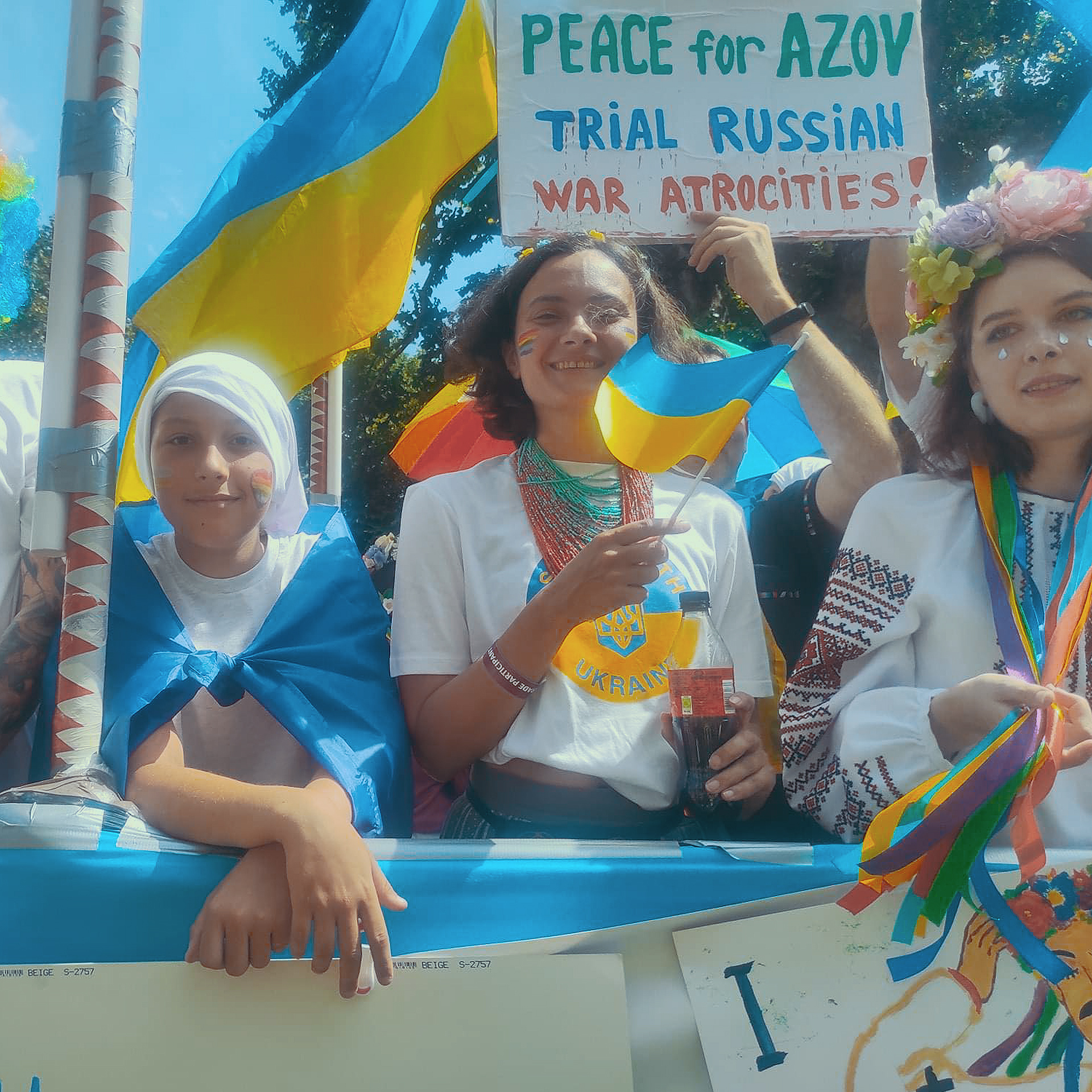
«Now I live in the red»
I don’t believe in government assistance for rebuilding my home. I have to earn money to rebuild my house. However, in over a year of being a refugee, I haven’t been able to save any amount of money. On the contrary, I have already spent all my savings. Even before the war, I planned to repair the roof of my house and had set aside money for that purpose, but in the end, I have spent it all. Moreover, I have been living here in constant debt. Something needs to happen for me to be able to save at least $30,000 for the reconstruction of my home in Irpin.
There’s something in America that I didn’t realize in Ukraine: it doesn’t matter how much you earn, it matters how much you spend. By Ukrainian standards, I have a great salary as a visiting researcher, but when I received my first paycheck, I realized within a week that I was at zero, and now I’m even in debt. I’m using my credit card because I don’t have enough money. Yes, initially we settled in a university apartment, but it was too small for me and my children. Then we encountered scammers who took advantage of us. The kids had to leave the school they had already grown fond of. Princeton is very expensive, and I couldn’t afford to find housing there. Besides, there was intense competition before the new academic year, and I have three dogs. Who would want to rent to me with them? There were options to pay $6,500 for monthly rent, which I couldn’t afford. I was searching for housing within the range of $3,000 to $3,500. It was impossible, so I had to move to another state where housing is cheaper. Initially, we lived in an unfurnished place. We didn’t have soapbox or a broom, and still don’t have a broom, but thank goodness for American dumpsters–they’re wonderful! People throw away things in really good condition, so you drive around the neighborhood on trash pickup day and load up your car. Within a week, I had almost fully furnished the house. It’s scary to sleep on mattresses you find in dumpsters (you never know what might be hiding in them), but I found a solution–mattress toppers.
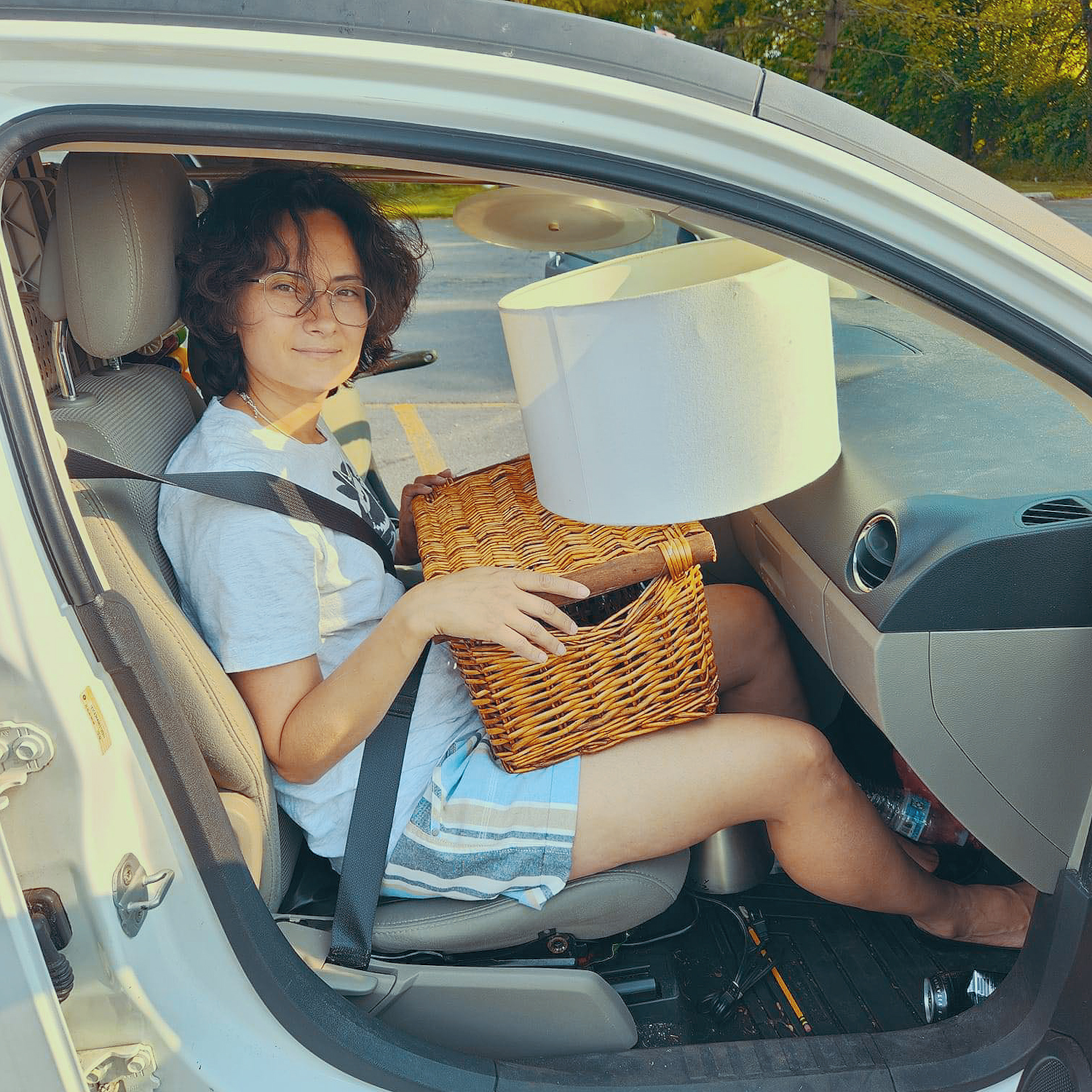
«Ukraine does not need me as a professional»
What bothers me is that Ukraine does not need me as a professional. My interactions with various executive authorities have confirmed that they do not need my services or my expertise. And when I come to Ukraine, what will I do? The first thing I will face is ageism – it will be a challenge to find a job at the age of 40. So I need to figure out how I will make a living in Ukraine.
Now my family: my grandmother, my aunt, my mother and her husband have returned from Poland and now live in the Khmelnytsky region. I keep in touch with them. My children, Yaroslav and Severyn, continue their studies at a Ukrainian school alongside the American one. It is important to me that they have Ukrainian school-leaving documents.
I follow all the events in Ukraine. I am also trying to develop an anti-bullying program for the Ministry of Education and Science and researching how Russian propaganda affects the emergence of new reasons for bullying in Ukrainian schools. As a writer, I published in Ukraine: three of my books are about to be published.
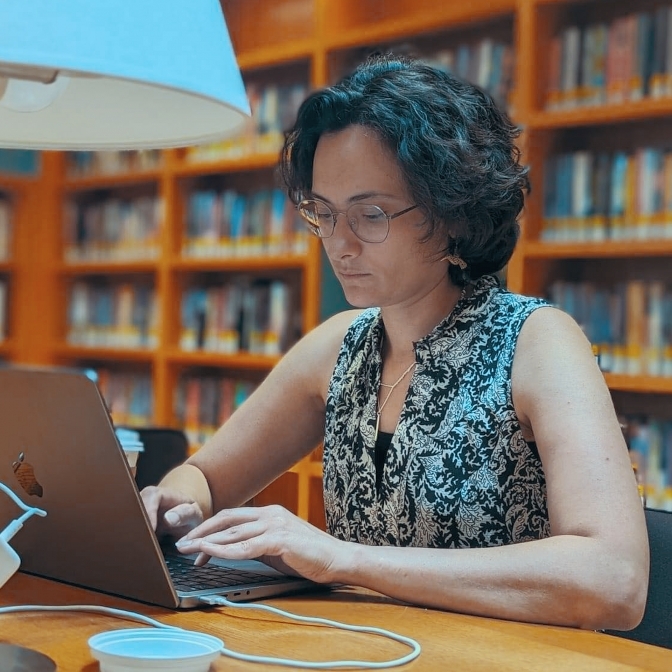
I do not plan to stay here, but on the other hand, I understand that my children need to receive education abroad. The difference in how inclusion works between the United States and Ukraine is colossal. For me, it is a priority because I have a child with special educational needs. He experienced constant bullying in school, which is why I started getting involved in this topic. Now, having compared schools in Britain and the United States, I am not willing to put my children back into our educational system.
How should Ukraine change?
We often look to the West as our reference point, but now I understand that there is much that the global West should adopt from Ukraine. I don’t know of any non-aligned state that can withstand challenges like the pressure from the Russian empire. Yes, we need to unite in blocs for survival, but we shouldn’t blindly accept everything imposed on us by the EU. We must defend our own conditions. For that, we have our unique and remarkable experience and distinctiveness, which give us a civilizational advantage.
How I truly yearn for our freedom! In Ukraine, you have the feeling that you can make a difference. If you are active, wherever you may be, there are social elevators that allow you to become a thought leader and influence your audience. In America, you are nobody, no matter what you do, you cannot change the system. It is so frozen that it’s like throwing peas against the wall. But Ukraine is dynamic, it has gone through so many trials and has shown that it can change, and that is something worth preserving.
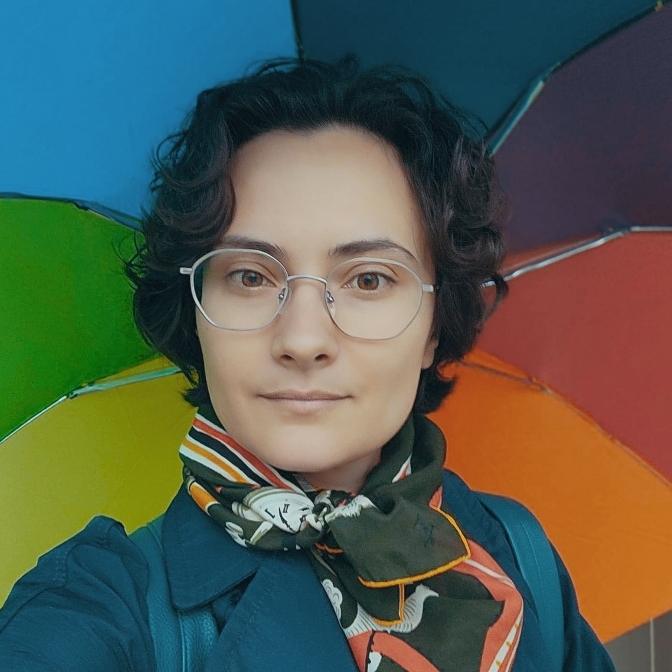
When I speak of uniqueness, I don’t just mean language and culture. We have a unique experience of democracy that dates back to the 5th century. We had a military democracy where people voted for their leaders, the chieftains. These traditions of democracy, freedom of thought, and the ability to coexist with different opinions have been present throughout our history for centuries.
In addition to that, I also teach Ukrainian history to children and have a good understanding of why we resist. We can exist in such anarchy. Different people in our country come together and initiate processes without any guidance from the authorities – they establish supply chains for the army, help the wounded. It’s impressive. I haven’t seen anything like this anywhere else in the world. This is our uniqueness. If you put us in the conditions of America, where every little thing is regulated by some rules, we would suffer openly. Ukrainians cannot be restricted because they are very freedom-loving, and I really like that. In reality, there is no freedom in America – it’s all propaganda. Everything here is highly regulated. We placed a table, three chairs, and a vase in our backyard, and we received a letter with a remark that there shouldn’t be more than three items in the backyard, and if there is a vase, it should not be dead. Why should someone be concerned about what is in my backyard, and why should someone care if my flower died?
Recently, in a neighborhood communication app, I came across a controversial post from a woman who claimed to be an anarchist. I thought to myself, «Oh my, what did this American woman disrupt?» She responded by saying that she broke the system because she planted tomato plants along the road, which is not allowed here. I was shocked... In Ukraine, we plant these tomato plants on the frontlines and in trenches – everywhere we can.
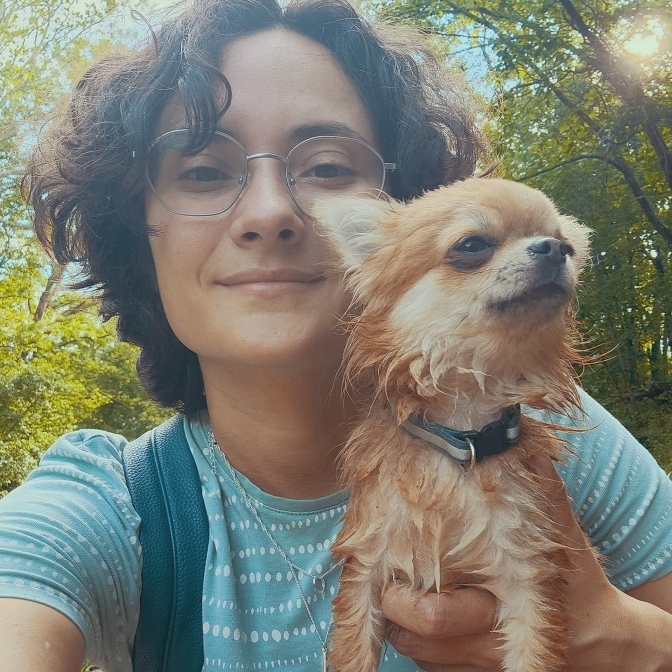
Why do Ukrainians quarrel with each other?
Unfortunately, the main culprit for most divisions is Russian propaganda, not only regarding the language issue. For my research, the NGO «CAT-UA» conducted its own investigation and showed that the main sources of conflicts among Ukrainians are initiated or supported by Russian accounts. It’s something I’m trying to understand and figure out what can be done about it.
First and foremost, we need to educate people about critical thinking, to see the bigger picture beyond their personal grievances. We need to protect our unity and resist the enemy because throughout history, Russians have used various tactics to divide us, to sway some Ukrainians to their side. This has repeated itself in history at least five times.
It is indeed a challenge to understand how Russians manage to find those sensitive points where our wounds run so deep that we can’t see the forest for the trees. We fail to see our global objective. We are so wounded that it is easier for us to target the same refugees, internally displaced people, or Russian-speaking individuals, rather than focus on the fact that we have a different enemy. It is difficult for us to overcome this because each of us carries our own pain and trauma. I don’t know how to overcome it or move beyond it. Ideally, we would need to «hack» our brains to resist falling prey to this hostile propaganda.
What will be our victory?
It is not only our victory that is important, but also Russia’s defeat. We want to ensure that our children never have to experience such a war again when they grow up. I am worried that in countries like the United States, no one talks about it because Russia remains a «sacred cow» for many. However, we know from the experience of the Chechen wars that if they are not pushed back decisively, the conflict continues.
Therefore, we must mentally detach ourselves from the Russian cultural sphere, rid ourselves of post-colonial dependency and inferiority. This is a significant challenge. We are only now beginning to realize ourselves as a post-colonial country that has suffered immense damage. We have not fully addressed the issue of our post-colonial past, nor have we fully separated ourselves from the Russian metropolis. That will be our true victory.
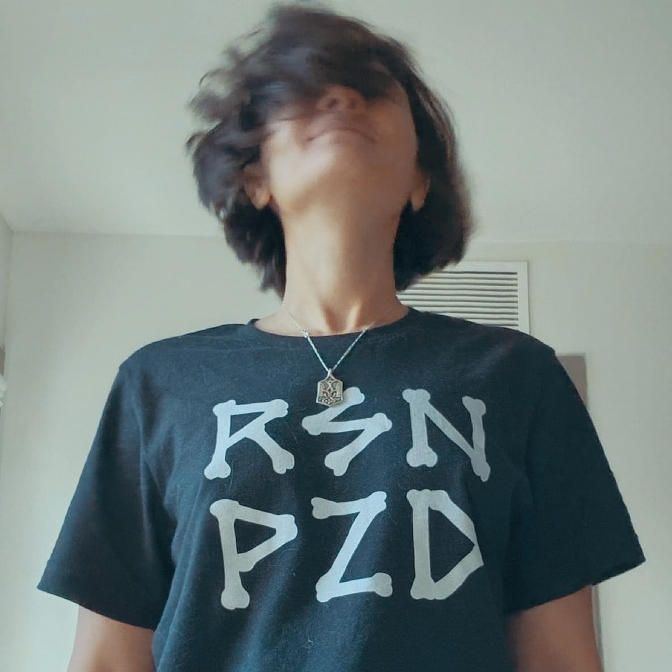
I cannot listen to the song «The thing is, I don’t have a home»
I want to write a book about refugees. I have a series of books about Khruli (a village in the Poltava region where Nastia bought a house and together with her friend Pavlo Tkachuk created an «artistic farm» – Lviv Now). In the first book, the children discover themselves and the small village of Khruli. In the next book, they start hitchhiking across Ukraine, where they learn about various crimes of the Soviet regime against Ukrainians. In the third book, the children travel abroad and see how people live there. And the fourth book will be about their experience as refugees. According to my plan, some of the characters who lived in Sumy region move to western Ukraine, while others go abroad and start arguing among themselves. In this book, I want to explore how they overcome these challenges and share the experience of displaced life. I also want to show that despite being scattered around the world, they find Ukrainians who have a strong national identity and are committed to preserving it.
It’s fascinating to hear about my acquaintance’s experience as refugees in another country, where they met immigrants who had arrived earlier and were teaching their children and grandchildren to create pysanky (Ukrainian Easter eggs) and sing Christmas carols. The displaced persons from Kharkiv, who were initially unfamiliar with these traditions, are now learning them and starting to understand their own identity and connection to Ukraine. This would indeed be an interesting aspect to highlight and explore in your writing. It showcases how cultural traditions can play a significant role in fostering a sense of belonging and strengthening one’s connection to their heritage, even in a new and unfamiliar environment.
I still can’t listen to the song ‘The thing is, I don’t have a home.’ I haven’t found a way to cope with it, I’m still stuck in that trauma. I remember when we moved to Poland and I saw seedlings, flowers in a kiosk, and I should have been planting them near my own home. It tore me apart... In the first few months, I couldn’t even go into home decor stores, even though it’s my hobby to decorate the house. Those stores simply overwhelmed me.
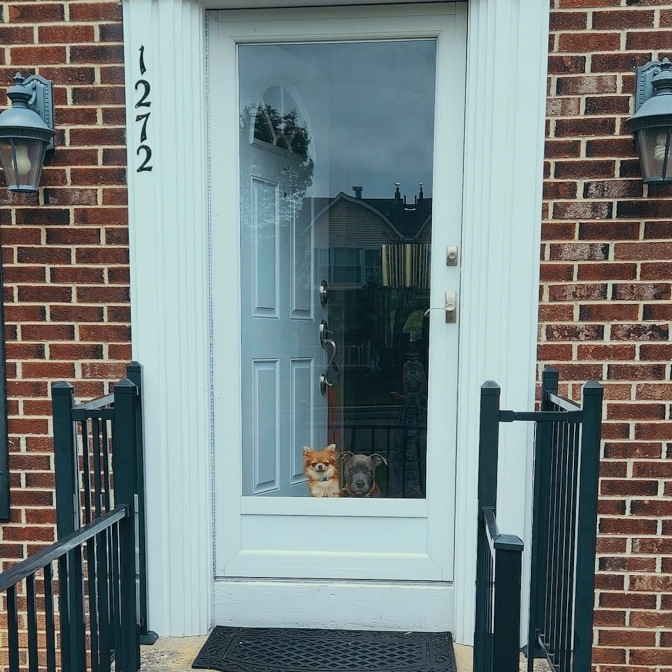
Now I have found a formula for myself – I create a home wherever I live. I don’t want to live in homelessness, in a suspended state, as long as the war continues. That’s why I am here and now, finding cool things, decorating my home to make it beautiful. Maybe I’ll also plant some tomatoes. I will try to make my home wherever it may be, although it will never replace the one I had in Ukraine.
This piece was created with the support of the «Institute of Mass Information» as part of the project «Supporting Independent Ukrainian Media during the War,» funded by the Ministry of Foreign Affairs of the Kingdom of the Netherlands.
According to the Office of the United Nations High Commissioner for Refugees (UNHCR), as of early March 2023, approximately 8.1 million Ukrainians have left for European countries following the start of the full-scale Russian-Ukrainian war. Of these, around 4.9 million individuals have legalized their stay through the mechanism of «temporary protection» in those countries. Unfortunately, a significant portion of Ukrainians, including those from regions where there are currently no active hostilities, remain abroad. They may sometimes face public condemnation for their decision to stay abroad instead of returning to their homeland. The migrants themselves often express dissatisfaction with the weak communication between them and the Ukrainian government.
Translated by Yulian Lahun
Follow us on Facebook and Instagram. Lviv Now is an English-language website for Lviv, Ukraine’s «tech-friendly cultural hub.» It is produced by Tvoe Misto («Your City») media hub, which hosts regular problem-solving public forums to benefit the city and its people.












